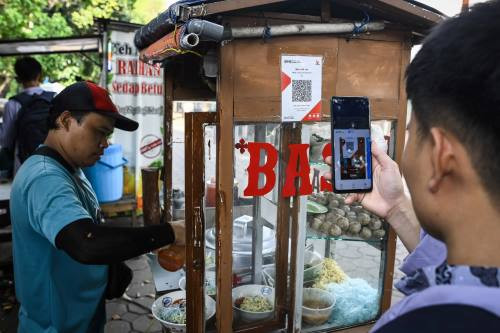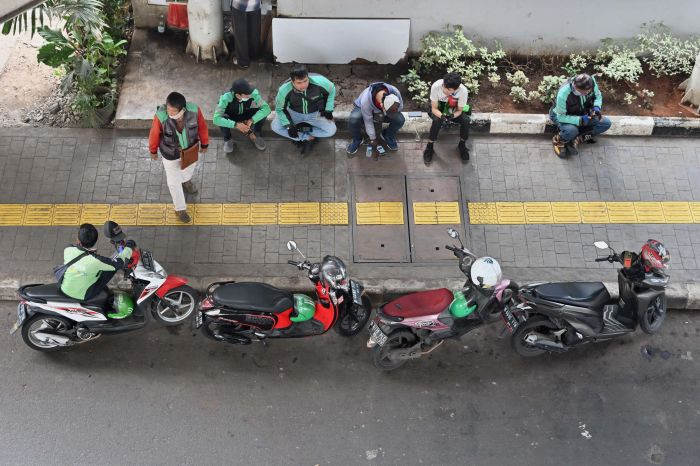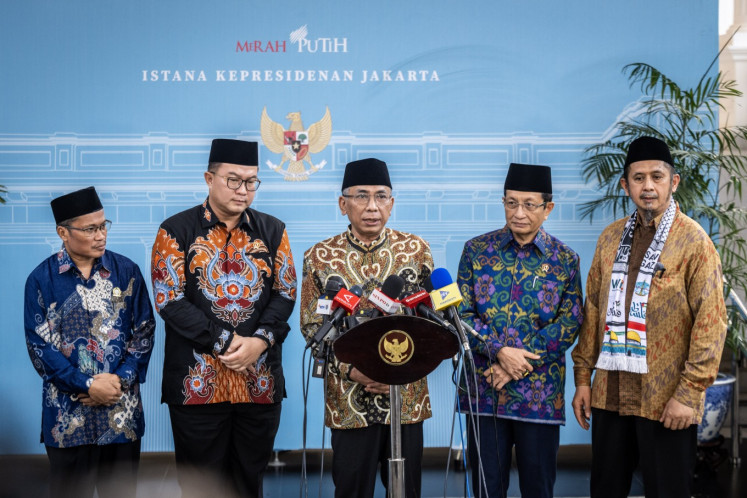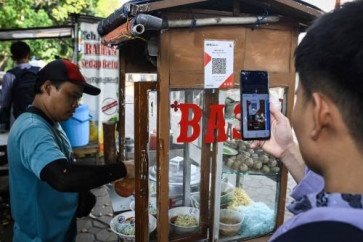Popular Reads
Top Results
Can't find what you're looking for?
View all search resultsPopular Reads
Top Results
Can't find what you're looking for?
View all search resultsThe Age of ASEAN: Building trust in Southeast Asia’s digital future
As ASEAN is positioning to be the heart of digital economy, fostering trust is key in reaping the benefits of growing digitalization and further empowering the vulnerable segments of the population.
Change text size
Gift Premium Articles
to Anyone
I
n the bustling streets of Jakarta, 50-year-old Siti (name changed) sits behind her food stall, where the aroma and sizzle of fried rice and grilled satay mingles with the hum of passing motorbikes. With a range of digital food delivery and e-commerce platforms helping her connect with more customers, business has never been better.
While Siti still accepts cash, these digital apps have made it easier for customers to pay and for her to manage her finances and bookkeeping with a simple tap on her phone.
Siti is just one of 70 million micro entrepreneurs driving economic growth in the ASEAN region. Over the last two decades, the region has seen its real gross domestic product (GDP) grow by 5 percent annually, reaching US$3.8 trillion in 2023, making it the fifth-largest economy globally. With digitalization empowering microenterprises like Siti’s, it is no surprise that ASEAN’s digital economy is poised to reach almost $2 trillion by 2030.
A foundational piece of this growing digital economy is the proliferation of instant payment systems (IPS) and, more recently, the rapid adoption of low-cost national QR payment channels.
From Indonesia’s QRIS to Cambodia’s KHQR and Thailand’s PromptPay, ASEAN has swiftly adopted the digital way to pay, with the share of digital payments to gross transaction volume already surpassing cash with just 48 percent in 2022 to about 56 percent in 2024, according to a study by Google, Temasek and Bain & Company. With payments transmitted directly to the merchant’s digital accounts, microenterprises can now easily manage their books, helping them monitor the growth of their business.
ASEAN continues to make strides in building and expanding cross-border QR payment linkages. Through the commitment and hard work of the ASEAN Working Committee on Payment and Settlement Systems (WC-PSS), several ASEAN countries, Cambodia, Indonesia, Lao PDR, Malaysia, Singapore, Thailand and Vietnam, are now able to conduct cross-border QR payment or person-to-person funds transfers. This means that financial processes that used to take days are now completed within minutes, enabling remittances, business payments, including e-commerce and tourism-linked transactions.
This translates into bigger business opportunities for microenterprises. Advancing digital payments and finance platforms, which is also reflected in the ASEAN Digital Masterplan 2025, the Bandar Seri Begawan Roadmap and the ASEAN Digital Economy Framework Agreement (DEFA), is a testament of ASEAN’s collective vision for inclusive digital growth and increased accessibility especially for the smallest businesses, offering a more seamless system that lowers barriers to entry and reduces operational costs.



















